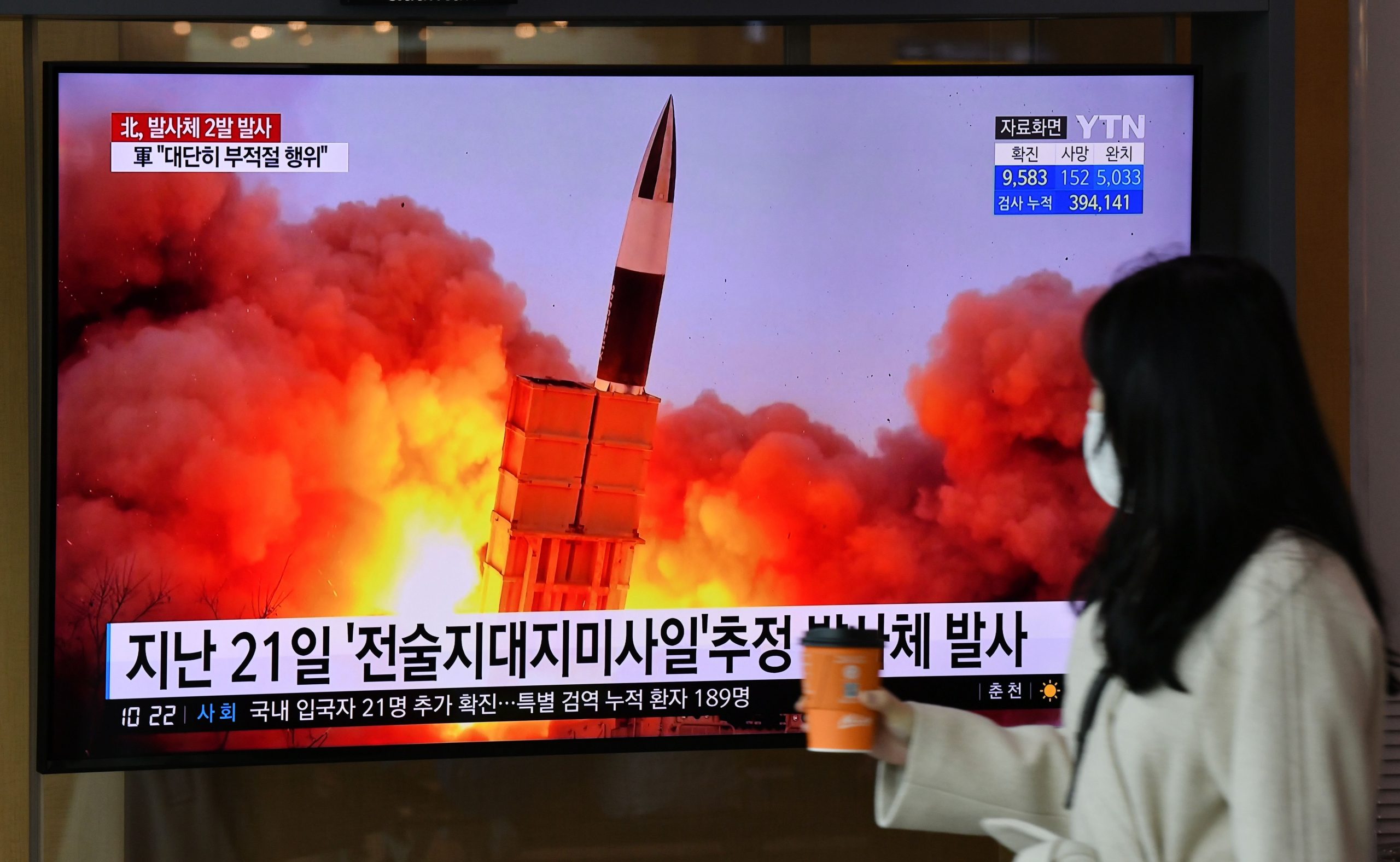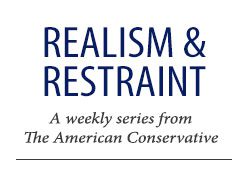The Coronavirus Could Spark a Nuclear Meltdown in North Korea

North Korea doesn’t get a lot of press these days. Yet as with all pandemics, our current coronavirus crisis will end, and Washington and its allies will once again be forced to consider policy options when it comes to the hermit kingdom and its growing nuclear weapons program.
And while a return to the 2017 days of fire and fury always seem like a worst case scenario, a much darker future is possible—especially if the coronavirus creates a situation where the Kim regime were to become unstable. As of Thursday, the government there was insisting it was coronavirus free, the result of a strict tightening of its borders with China and South Korea. The rest of the world looks on skeptically, however, as global infections rise to nearly one million.
In fact, the coronavirus presents a golden opportunity for both Washington and Seoul to try a radically different approach when it comes to North Korea: the full lifting of all economic sanctions on Pyongyang until the World Health Organization deems the pandemic over. 
Now, there will be many who will say this is an absolutely crazy idea, allowing Pyongyang to regain some of the economic strength it had before maximum pressure-style sanctions were put into place back in 2017. However, we should stop and consider for a moment what would happen if the North Korean regime were to become destabilized even partially. This would create an even worse coronavirus nightmare: a loss of control of the country’s vast quantities of weapons of mass destruction and the materials that make them deadly.
Consider the following scenario. What if, thanks to a poorly supplied health care system, there were tens of thousands if not hundreds of thousands of North Korean deaths thanks to the coronavirus? With millions more infected and unable to work, would Pyongyang’s normal safeguards for securing its nuclear, chemical, and biological weapons start to become lax or even nonexistent? And even if proper security measures were taken to secure weaponized systems, what if lower-priority facilities—think of labs that might have spores of anthrax or production facilities for chemical weapons such as VX—were to suddenly go unmanned? While we fear North Korea’s weapons of mass destruction being used in a deliberate fashion, the theft or sale of such weapons out of desperation seems like an even more likely threat these days.
The good news is that the Trump and Moon administrations can act now and ensure that none of that happens. As a first step, both should approach the UN Security Council and ask for a waiver on all UNSC sanctions passed from 2016 that pertain to North Korea until the WHO proclaims the current pandemic passed. Both administrations could then reach out to the Kim regime with concrete offers of food aid led by NGOs, as well as medical aid, teams of first responders and respirators. All of this would ensure that the North Korean people—through no fault of their own—do not die en masse and do not create such a strain on the North Korean health care system that it results in societal and governmental breakdown.
Once the immediate dangers of the crisis are over and coronavirus case increases are slowed, Washington and Seoul should seek to restart negotiations with North Korea. But our joint goals must be recalibrated to something approaching realistic. We should first try to lay the foundation of success by coming to agreement on things that all sides can easily agree to: a simple declaration and ceremony declaring the Korean War over would be the easiest start point. That would create the goodwill and momentum needed to begin to tackle the harder issues that are to come. It would give Donald Trump the ability to claim a major foreign policy victory during this year’s presidential campaign. It would also give Kim Jong-un a key victory as well, ceding him the political capital to make future concessions.
But then harder choices would need to be made. What to tackle first won’t be an easy decision. Starting with nuclear weapons and missiles would scuttle any talks almost immediately, so why not start with more low hanging fruit? For example, why not begin arms control talks with a focus on pulling back all soldiers and military equipment from the Demilitarized Zone by five miles? Both sides would get a chance to catalogue, inspect, and watch all equipment leave a defined space that is clearly the world’s most dangerous. This would build trust between all sides and allow tougher negotiations to build to an endpoint where nuclear weapons could be discussed but in a way that could leverage the relationships and trust already built up.
Of course, history tells us none of this will be easy. Crafting a new relationship with North Korea will take years—if not longer. However, we must ensure that the coronavirus is not the spark for a weapons of mass destruction crisis that would only make matters worse for the entire world. By lifting sanctions in the short term and trying to offer North Korea a practical path towards becoming something close to a normal nation, we can finally answer the age old question of whether Pyongyang is serious about shedding its rogue regime image. I think these small concessions are certainly worth a try.
Harry J. Kazianis serves as a senior director at the Center for The National Interest, a public policy think tank founded by President Richard M. Nixon.
Comments